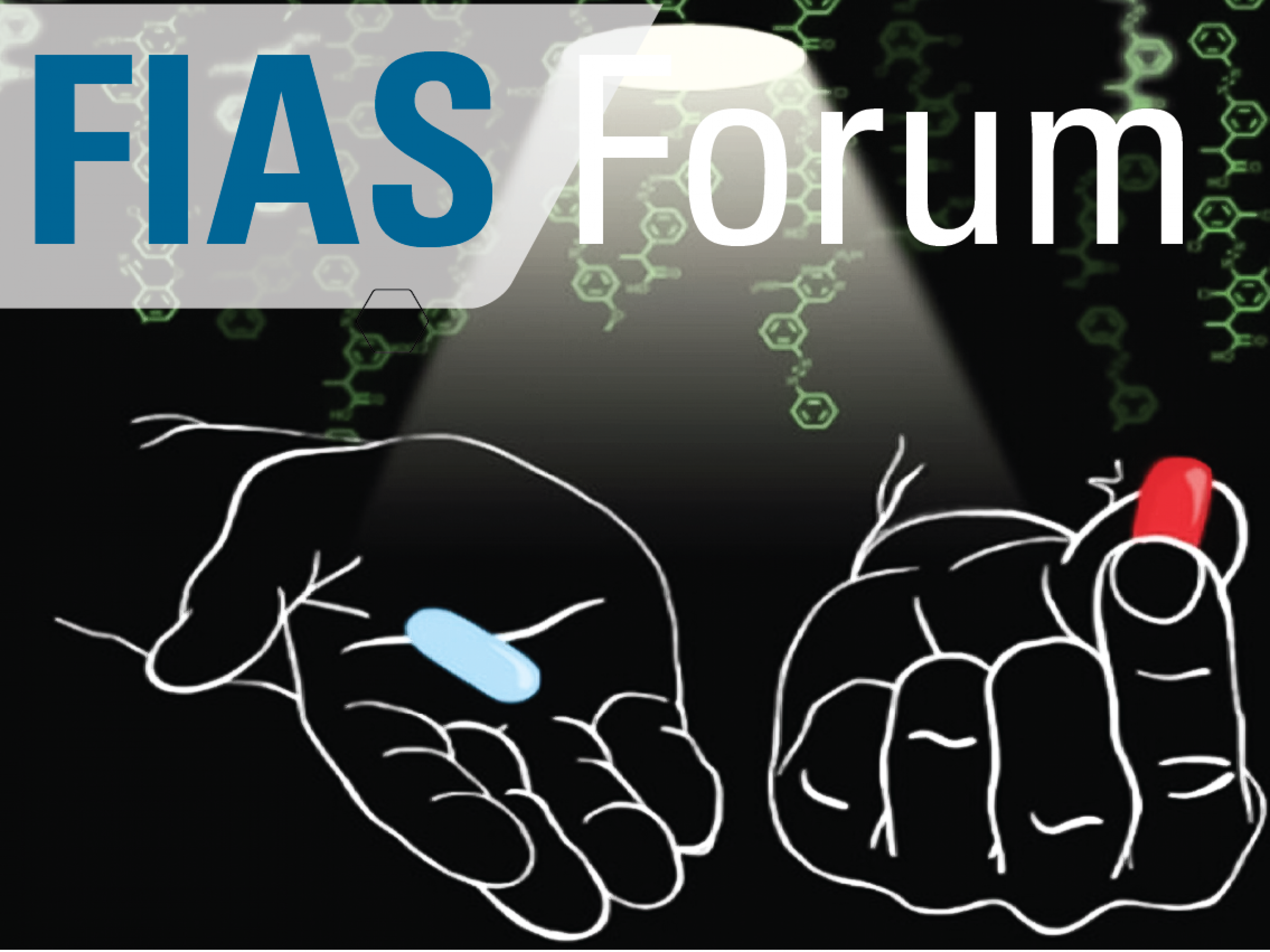March 7, 2024 6:00 pm / Everyone
How light switches can be used in drugs of the future
FIAS Forum with Fellow Sebastian Thallmair

Venue: FIAS Hörsaal
Light-switchable molecules are an integral part of our daily lives. For example, they enable one of the central forms of our perception: vision. By absorbing light energy, these molecules can change their structure. This change ensures that signals are transmitted to the brain via nerve cells. The incorporation of molecular light switches into future drugs opens up fascinating possibilities for the temporal and spatial control of drugs.
For example, a drug could be activated specifically only in the areas of the body affected by a disease. In many cases, this could drastically reduce side effects.
However, the development of light-switchable drugs also poses new challenges. For example, the installation of a molecular light switch should affect the effect of a drug as little as possible. At the same time, its switchability must be maintained. In addition, the molecular light switch should survive absorption through the digestive tract.
The lecture will take a look at current research into light-switchable molecules in biology, focusing in particular on the challenges involved in their development and potential application in drugs.
Further information & registration:
Event details:
Date: 07.03.2024
Start of lecture: 18:00
Reception: Small reception following the lecture (pre-registration required)
Location: FIAS Lecture Hall
About FIAS Forum:
The FIAS Forum is back and will present current topics from the natural sciences and the social debate four times a year in a scientific and at the same time understandable way. This enables exciting discussions about the acute challenges in scientific research and their influence on our society.
After the lecture, you will have the opportunity to exchange ideas with the speaker and other FIAS scientists at a small reception.
Registration:
Participation in the event is free of charge. However, due to limited capacity for the reception afterwards, we kindly ask you to register in advance.